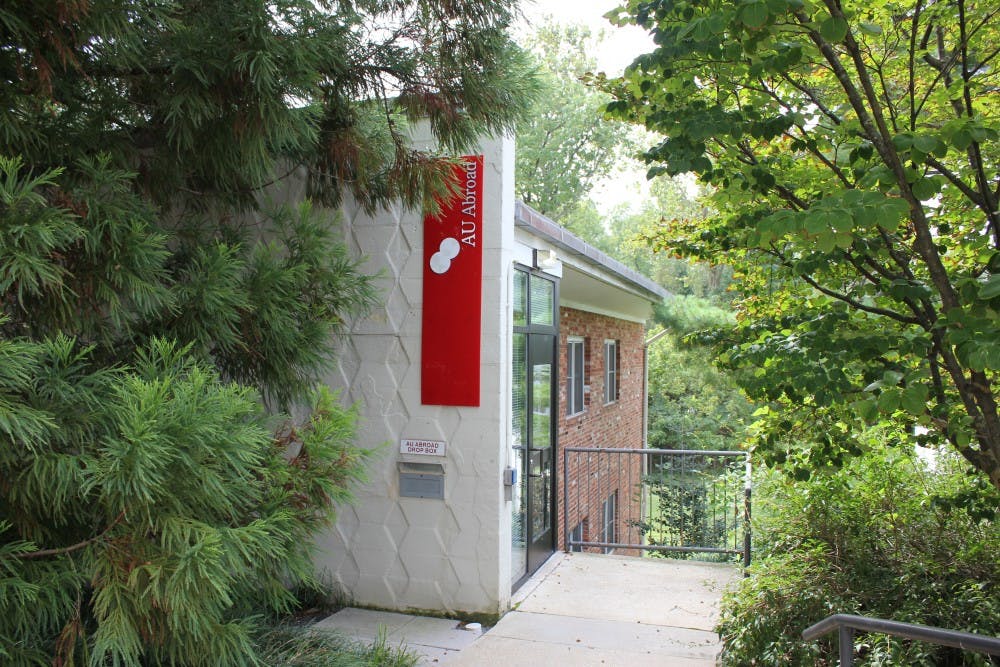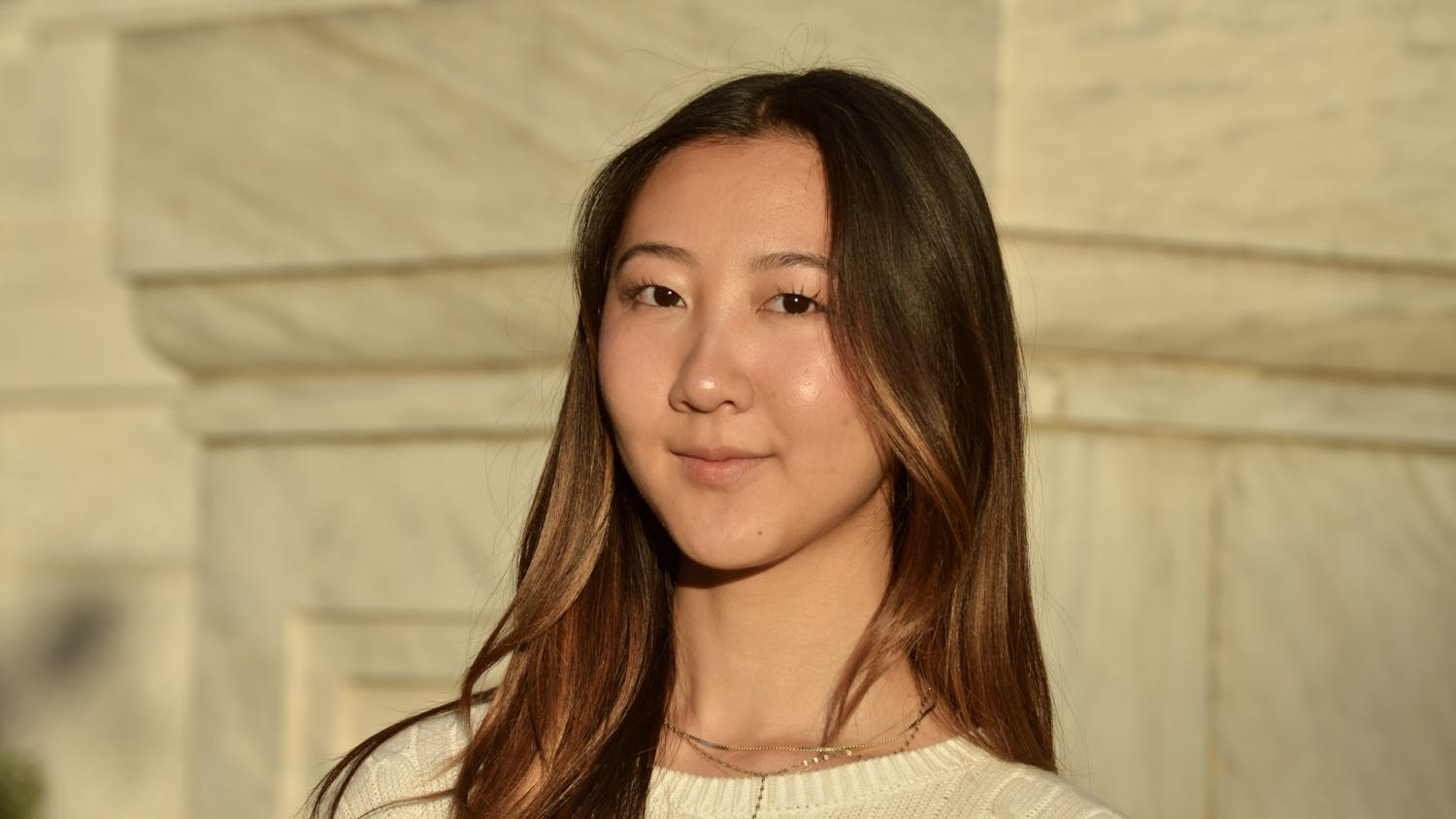Seventy percent of AU students study abroad before they complete their degree program, according to AU Abroad. While some students enjoy their time in a different country, other students face many ups-and-downs while attending classes, exploring the city and making new friends.
Mark Hayes, the director of AU Abroad, said there are many types of support the University provides for the students who go abroad, including a point-person for the student.
“That person stays in contact with them before they go abroad, they manage the pre-departure and go through all the things you need to think about for adjusting to their experience abroad,” Hayes said, adding that there is additional support at the location near the student.
The Eagle spoke with students about the good and bad of going abroad, including culture shock, financial stress and homesickness.
Student describes culture shock with language, street harassment
Diana Knott, a senior completing a dual-degree in the School of International Service and the College of Arts and Sciences, studied abroad in two different countries in one year. First, she studied in Grenoble, France, and then Rabat, Morocco.
“It definitely feels like you almost can’t talk about the difficult things that happen to you, you just say like, ‘Yeah, it was all rainbows and sunshine,’” Knott said about studying abroad.
Knott said that there were challenges that she did not anticipate. In France, she struggled with the language, her host family and homesickness. The host family Knott stayed with had eight children and she felt that she could often not keep up with the systems that the family had in place at home.
She posted onto Facebook telling her friends to not contact her for a while so that she could focus fully on her French, and some of her friends took it personally. She switched to watching shows and movies only in French.
In Morocco, Knott also faced host family problems, street harassment and the lack of local places to hang out. While she believed she could handle cultural differences in Morocco, there were still unexpected differences that threw her off.
Knott repeatedly reminded her host mother that she was lactose-intolerant, but felt that she didn’t believe or didn’t understand it. Additionally, she said she expected the dress code to be more conservative while outside, but she was surprised to find out that she had to be fully dressed inside the house at all times.
“Inside the house, I’m used to wearing like, a tank top and shorts,” Knott said. “But, because you’re living with a host family, I just couldn’t do that.”
Knott said that people didn’t necessarily see harassment on the street as negative. She said that the buses and the trams had some of the worst level of harassment, with girls getting groped on the tram.
“At some point, I stopped walking to school, I started taking taxis,” Knott said.
Financial stress weighs in on students
Alex Healy, a senior in CAS, studied abroad in London, England for one year and said he found it “incredibly rewarding.”
“I had a better time there than I could ever even hope to imagine having at AU,” Healy said.
He was prepared for some culture shock, but did not find extreme cultural differences living in England. He found that his life was made much easier with the British way of living. He said he connected more with the other abroad students in his program, as the dorm he lived in was occupied by first-years and graduate students.
According to Healy, the cost of tuition at London School of Economics and Political Science (LSE) is almost half of what students pay at AU. But, because he studied abroad through AU, he paid full AU tuition.
“And then they turn around and they pay what I owe LSE and pocket the rest,” Healy said. “And, I’m not using any of their services or anything, but they still have my money.”
Healy said that the money the program gave him to live on did not stretch as far in London and he was lucky to have family to help out when his bank account got dangerously low.
“For a student from a different financial background, they would not be able to have this experience that I had,” Healy said. “The opportunity for anyone to apply is there, but it is so prohibitively expensive to go to a place like London.”
Healy said that if AU did not charge full tuition and pay the program what the student owes but keep the rest, then the opportunity to study abroad would be more accessible to many more students.
According to AU Abroad, 46 percent of semester-long programs cost less than or equal to the cost of attendance at AU. Healy paid program fees on top of tuition for the year that he was abroad.
While applying for his visa to study abroad, Healy also paid a surcharge to the National Health Service and was granted access to healthcare. But, he was still required to purchase the AU health insurance for around $1,800, he said.
Student describe feelings of isolation
Hannah Camp, a senior in CAS, studied abroad through AU in Nairobi, Kenya.
“You hear about people like, having the most incredible experience so you expect to have all of these highest of highs but nobody ever really talks about experiencing any of the lows,” Camp said.
Camp felt isolated if she wasn’t having the best time and felt that others would say she was ungrateful for the opportunity.
“If I felt like if I wasn’t having the best time, then that meant that I was doing something wrong, that I was wasting money, that I could be back here [at AU] doing something more important,” Camp said.
Students are unable to use the AU Counseling Center resources due to licensing issues, but have resources available that differ in each program and location, according to Hayes, the AU Abroad director. Students are also able to call the Collegiate Assistance Program, also known as the 24/7 nurse line, if they need to.
“Our ideal is to be able to have a support system in place on the ground for them so that they have someone to talk to if they need to,” Hayes said.
Before going abroad, she prepared herself for any type of culture shock she may have but experienced “reverse culture shock.” When she arrived in Kenya, she accepted any differences with an open mind and got used to the culture.
When the host family went out to eat, Camp said that there is the expectation that the man of the house gets served first.
“And, I disrupted that dynamic by being white,” Camp said. “They served me before they served my host father and he always gets served first.”
Camp said she grew to appreciate the soft-spoken yet blunt way of speaking in Kenya but, when she returned to the United States, she noticed a lot of people were passive-aggressive in how they spoke.
Another difference that she got used to was being hyper aware of her surroundings and not wearing headphones while walking in the street. Additionally, Camp said she found it difficult to return to her community and friends back home after building such a strong one in Kenya.
“Coming back was really strange and I think it was because I changed a lot as a person while I was there,” Camp said. “Not all solely because of Kenya but because it just like, required me to grow a lot.”





